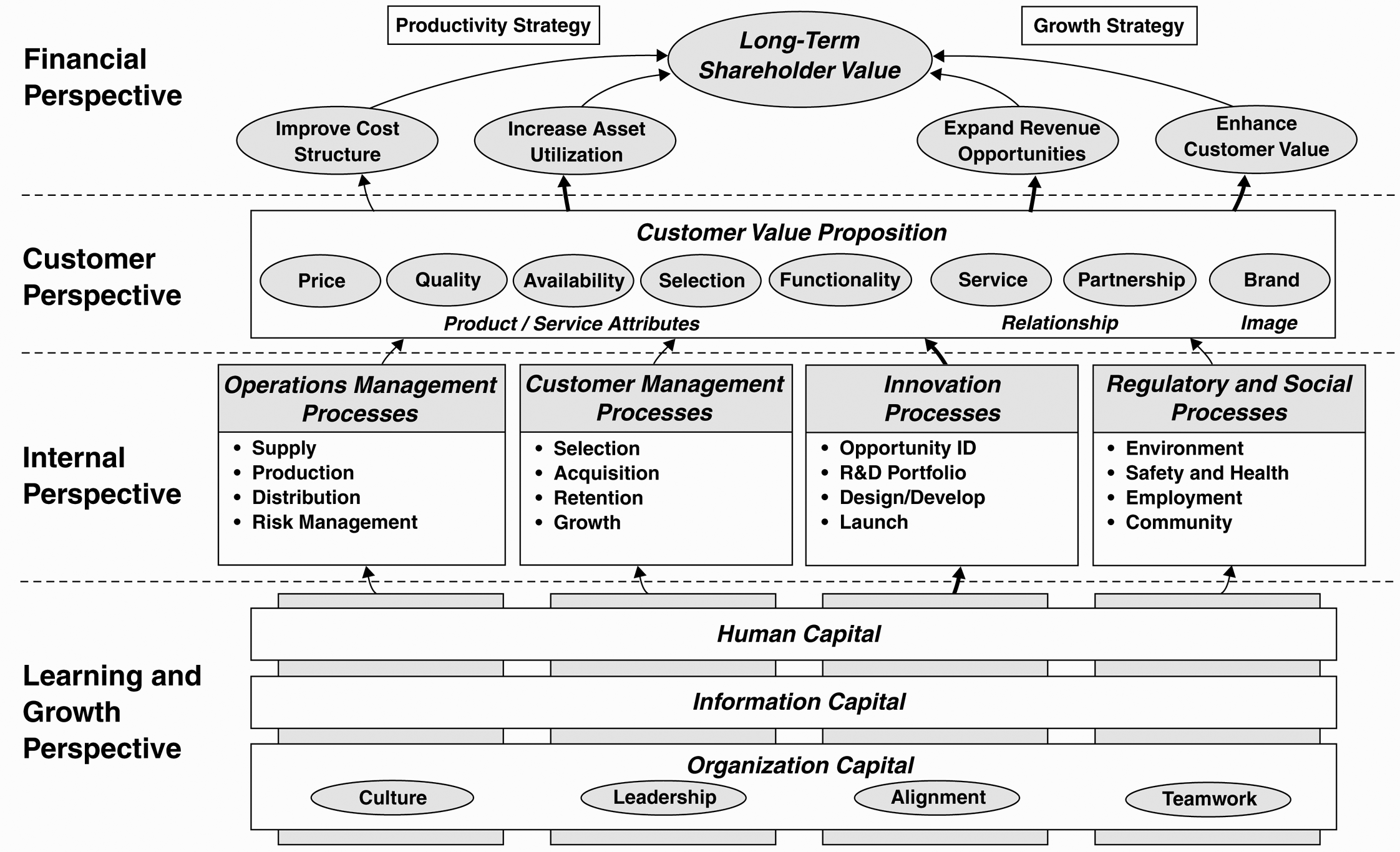Balanced scorecard is a strategic tool that measures the implementation of the strategy in a relevant and comprehensive way. It is often referred to also as strategy map. If properly designed balanced scorecard monitors effectiveness and efficiency of the operational measures.
Balanced scorecard makes strategy operational by translating it into performance measures. Operational orientation allows monitoring of the strategy via selected key performance indicators in a simple and easy way (status and change over time).
Balanced scorecard is a great tool to holistically track the execution of a strategy and understand the “causes – consequences”.
The balanced scorecard divides measures into the following interdependent perspectives – innovation, internal processes, customer and financial.
-
- Balanced scorecard: Financial
How is the success of the company seen by shareholders? The measures often relate to the creation of value, share price, market shares, growth rates, profitability margins and returns, liquidity, viability, cost reduction etc. - Balanced scorecard: Customers
How is the company seen by its customers? The measures often relate to the customer needs (new market penetration, developing new products and services), customer satisfaction, customer loyalty etc. - Balanced scorecard: Internal processes
How do people and processes perform? The measures often relate to the improvement of core competencies, improvement of technologies, production excellence, quality management, inventory management, motivating employees etc. - Balanced scorecard: Innovation
What possibilities of development and learning do the employees have? The measures often relate to the key personnel, research and development, continuous improvements etc.
- Balanced scorecard: Financial

Balanced scorecard should consist out of well defined set of measures. Each one, should be attributed to one or more employees, responsible for its execution. Eventually it would allow better control over the implementation of the strategy and facilitate the elimination of bottlenecks.
Due to the integrity of the balanced scorecard framework, the measures defined provide compliance with the strategy and in no way encourage short-term activities that are harmful to the company in the long term.
In contrast to traditional thinking, the quantitative as well as qualitative measures are set in the balanced scorecard. Defining measures requires that one thinks about the possibility of updating and comparing the results, the degree of reliability, objectivity, appropriate responsible person, current state of the measures etc.
Strategy and the measures defined within the balanced scorecard framework are the base for preparation of other plans, such as marketing and sales plan, financial plan, and operational plan.
Interested in our support linked to strategy consulting ? Please contact us and we will be glad to prepare you an offer!







